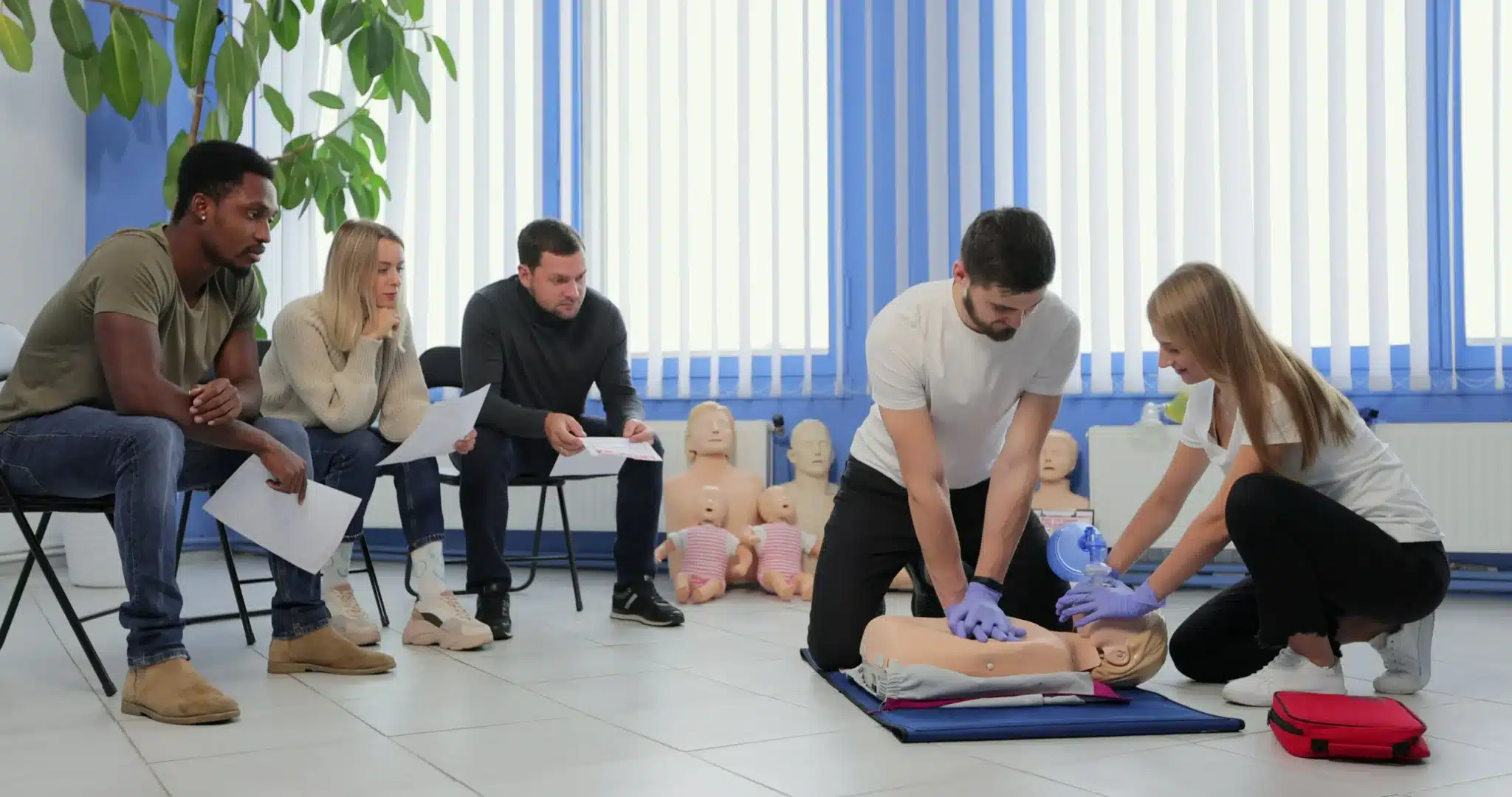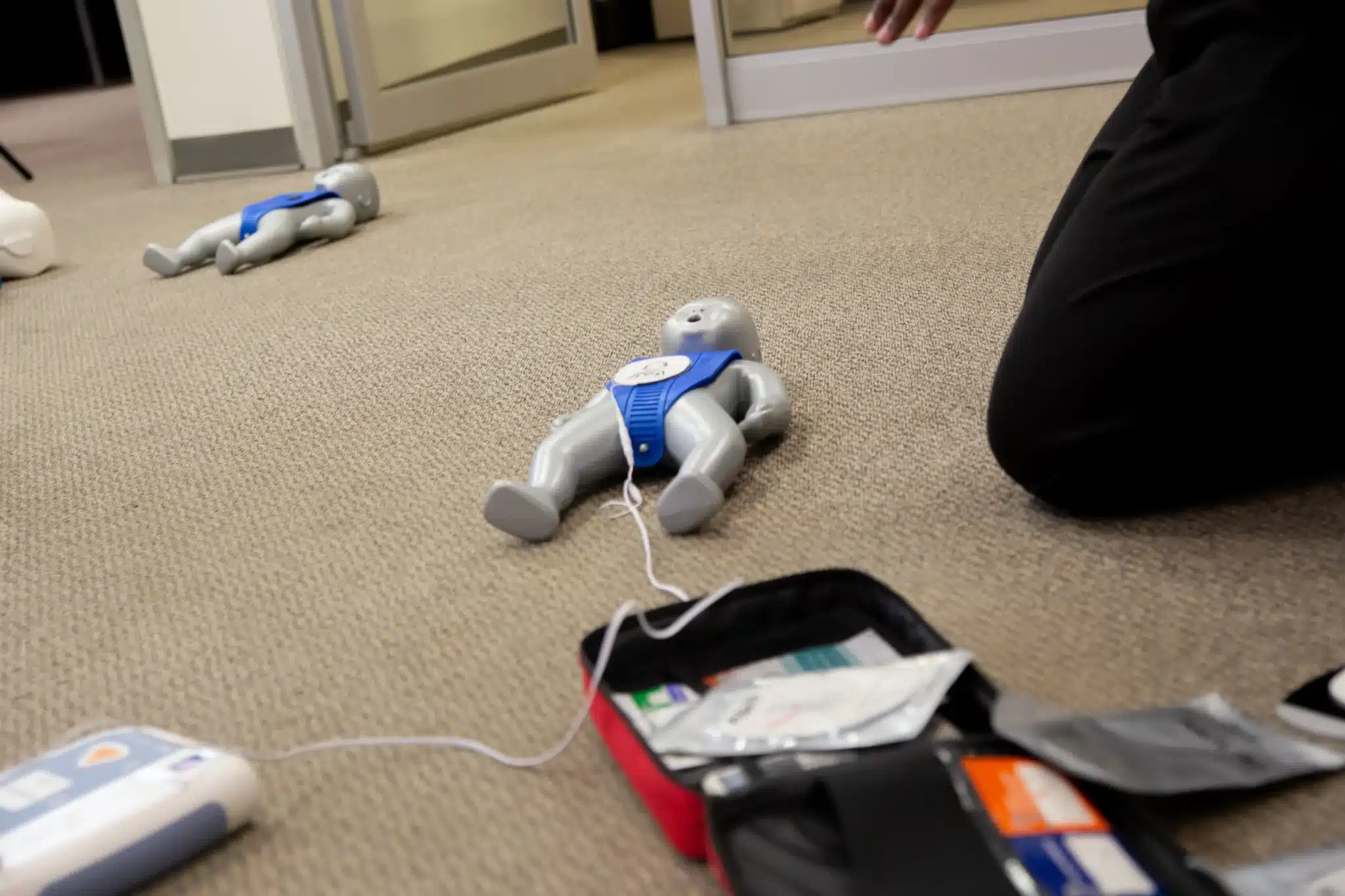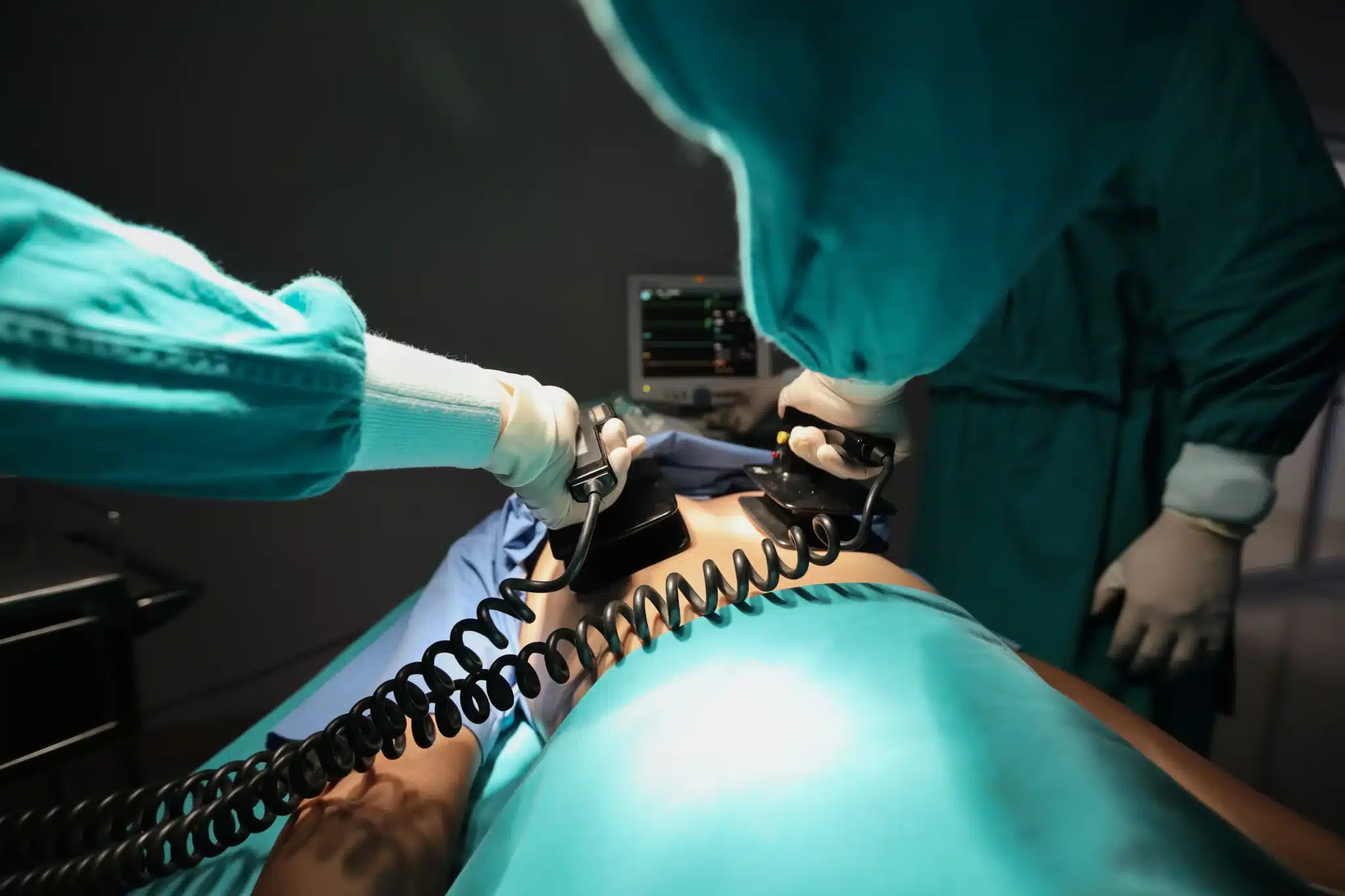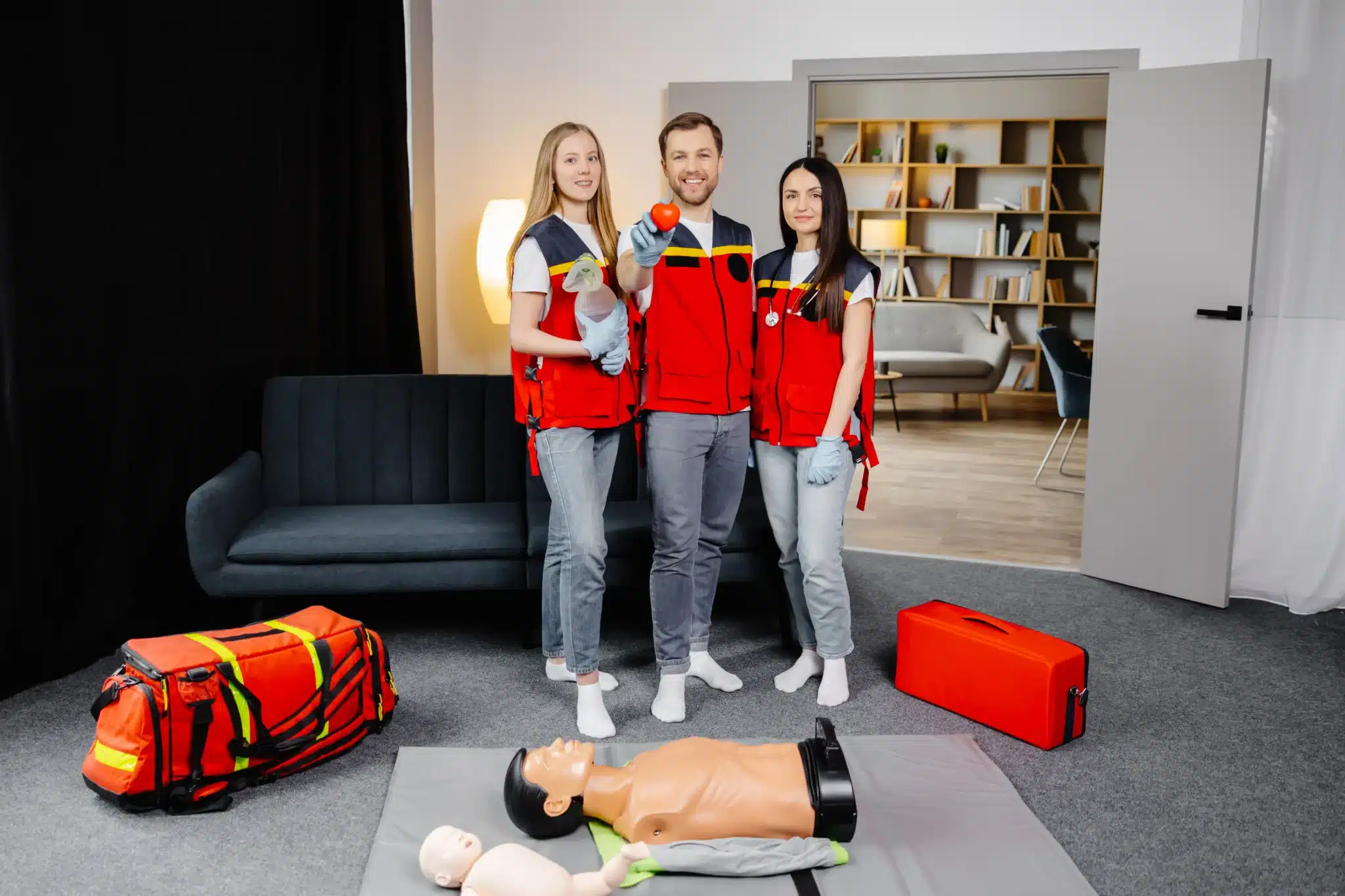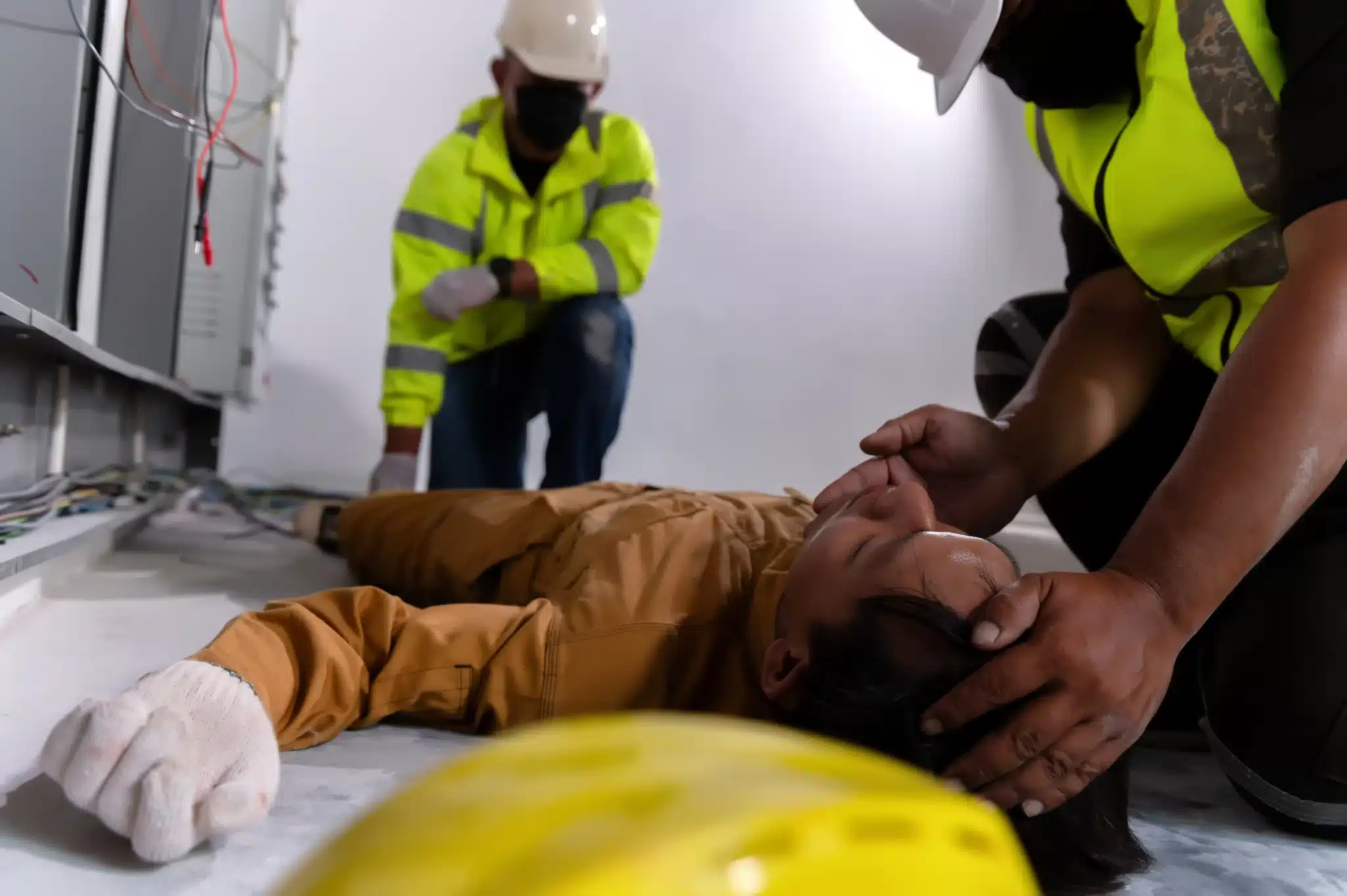Working in healthcare, you know that every second counts during a cardiac emergency. Having the right skills and training can make all the difference in patient outcomes. That’s where Advanced Cardiovascular Life Support (ACLS) training comes in. This article explores ACLS courses in Newark, covering everything from what to expect in the course to how to choose the right training provider. We’ll also discuss the benefits of ACLS certification for your career and how it empowers you to provide the best possible care during critical situations. Whether you’re a nurse, paramedic, or other healthcare professional, this guide will help you find the perfect ACLS course to enhance your skills and advance your career. We’ll also highlight local options like Fremont CPR Classes, serving Fremont, Newark, and San Jose, and discuss the importance of AHA-approved certification.
Key Takeaways
- ACLS Certification Enhances Your Healthcare Career: Mastering advanced cardiovascular life support techniques positions you as a highly skilled provider, opening doors to career advancement and specialized roles. It’s a valuable investment in your professional future.
- Select Your ACLS Course Wisely: Look for AHA-approved courses with experienced instructors, a comprehensive curriculum, and a format that suits your learning style (in-person, online, or blended). Asking potential providers targeted questions ensures you find the best fit.
- Preparation and Continued Learning are Key: Brush up on key concepts like EKG interpretation and pharmacology before your course. Utilize pre-course resources and assess your strengths and weaknesses. After certification, leverage post-course support and continuing education to maintain your expertise.
What are ACLS Courses in Newark?
ACLS stands for Advanced Cardiovascular Life Support. ACLS courses in Newark prepare healthcare providers to handle cardiopulmonary emergencies. These courses go beyond basic life support (like CPR) and cover advanced techniques for managing respiratory and cardiac arrest, strokes, and other serious cardiovascular conditions. Think of it as the next level of training for those who regularly encounter these situations, such as doctors, nurses, paramedics, and respiratory therapists. Fremont CPR Classes offers ACLS certification among its many courses.
These courses emphasize a team-based approach, teaching participants how to effectively communicate and coordinate during critical situations. You’ll learn how to quickly assess a patient, make rapid decisions, and administer appropriate treatments, all while working seamlessly with other medical personnel. ACLS certification demonstrates a commitment to providing high-quality patient care and can be a valuable asset in your healthcare career. The training covers a wide range of topics, from recognizing the early signs of a heart attack to using advanced airway management techniques and administering medications during resuscitation efforts. For those in the Fremont, Newark, and San Jose area, convenient local training options are available.
Newark offers several options for ACLS training, including programs at hospitals like Newark Beth Israel Medical Center, which highlight the importance of ACLS skills in both hospital and pre-hospital settings. You can also find courses at University Hospital, which focuses on practical skills and real-world scenarios. Additionally, organizations like Brooks CPR and TruPulse offer AHA-authorized ACLS courses, often with flexible scheduling options like same-day certification. Finding a course that fits your needs and schedule shouldn’t be a problem. Contact us to learn more about ACLS courses and explore options for group discounts.
Top ACLS Course Providers in Newark
Finding the right ACLS course is crucial for healthcare professionals. Here’s a look at some leading options in Newark:
Fremont CPR Classes
Fremont CPR Classes offers various CPR and ACLS training options designed for healthcare providers. These courses equip participants with essential skills to manage emergencies. Explore their BLS and ACLS courses, and consider their group discounts.
RWJBH – Newark Beth Israel Medical Center
Newark Beth Israel Medical Center’s ACLS course prepares healthcare professionals for effective performance in emergencies, emphasizing teamwork and leadership.
University Hospital
University Hospital’s Center for Emergency Preparedness and Response offers ACLS courses to improve emergency response, serving healthcare workers, first responders, and the community.
TruPulse
TruPulse provides AHA-authorized ACLS and BLS training, often with same-day certification, a convenient feature for busy professionals.
NHCPS (National Health Care Provider Solutions)
NHCPS offers a free online ACLS course aligned with the latest AHA guidelines, allowing flexible learning for certification or recertification.
Brooks CPR
Brooks CPR specializes in ACLS, BLS, and PALS certification, focusing on practical skills for real-world medical emergencies.
HealthForce Training Center
HealthForce Training Center’s ACLS training targets cardiopulmonary arrest and other cardiovascular emergencies, emphasizing practical application.
Choose the Right ACLS Course Format
Finding the right ACLS course format depends on your learning style, schedule, and preferences. Let’s explore the most common options: in-person, online, and blended learning. Each has its own advantages, so consider what works best for you.
In-Person ACLS Training
In-person ACLS training offers a structured, hands-on learning environment. Led by a certified instructor, these courses prioritize teamwork and communication—essential skills for effective emergency response. You’ll engage in interactive discussions, practice skills in real-time, and receive immediate feedback. This format is ideal for those who thrive in a traditional classroom setting and value direct interaction with instructors and peers. In-person ACLS training emphasizes the importance of hands-on learning for mastering these critical skills. If you learn best through direct interaction and hands-on practice, in-person training might be the right choice. Consider factors like commute time and course schedules when making your decision. Fremont CPR Classes offers in-person training in the Fremont area.
Online ACLS Courses
Online ACLS courses provide flexibility and convenience. If you have a busy schedule or prefer learning at your own pace, an online format might be a good fit. You can access course materials and complete modules from anywhere with an internet connection. Online ACLS courses allow you to study when and where it’s convenient for you. However, keep in mind that online courses typically require self-discipline and motivation to stay on track. While online courses offer theoretical knowledge, they may not provide the same level of hands-on practice as in-person training.
Blended Learning Approaches
Blended learning combines online learning and in-person skills sessions. You’ll complete the theoretical coursework online at your own pace, then attend an in-person session to practice and demonstrate your skills. This format offers flexibility while still providing the hands-on experience crucial for ACLS. Blended learning programs can be a great option for those who want flexibility but also recognize the importance of hands-on training. Consider whether the combination of online learning and in-person sessions aligns with your learning style and schedule. This approach allows learners to complete theoretical components at their convenience while still benefiting from hands-on practice.
What to Expect in an ACLS Course
An Advanced Cardiovascular Life Support (ACLS) course equips healthcare professionals with the skills to manage cardiovascular emergencies. Understanding the course structure and content will help you prepare and make the most of your training. Here’s what you can expect:
Course Content and Curriculum
ACLS courses cover a comprehensive curriculum focused on recognizing and managing life-threatening cardiac events. You’ll learn how to identify and treat cardiac arrest rhythms, administer medications, manage airways, and provide post-cardiac arrest care. The ACLS course from Fremont CPR Classes follows American Heart Association guidelines, ensuring you receive current, evidence-based training. The curriculum also covers essential algorithms and protocols for managing strokes, acute coronary syndromes, and other respiratory emergencies.
Practice Hands-On Skills
ACLS training isn’t just theoretical. You’ll spend a significant portion of the course practicing hands-on skills. You’ll work with medical equipment like defibrillators, airway management devices, and intravenous lines. These sessions allow you to apply your knowledge in a simulated environment, building confidence and proficiency in essential procedures.
Simulation Scenarios
ACLS courses use realistic simulation scenarios to prepare you for real-world emergencies. These scenarios mimic actual clinical situations, requiring you to assess patients, make critical decisions, and work as a team to deliver effective treatment. Simulations offer a safe space to practice your skills, refine your decision-making, and improve communication in high-pressure environments. This immersive experience bridges the gap between theory and practice.
Team Dynamics and Leadership Training
Effective teamwork and communication are essential for managing cardiac emergencies. ACLS courses emphasize team dynamics and leadership skills, teaching you how to collaborate with other healthcare providers. You’ll learn to assign roles, communicate clearly in critical situations, and provide constructive feedback. This focus on teamwork will prepare you to lead and participate in resuscitation teams, ensuring coordinated and efficient patient care. If you’re enrolling with colleagues, check out group discounts for cost savings.
Prepare for ACLS Training
Getting ready for an ACLS course? Smart move! Preparation is key to success in this fast-paced course. Here’s how to get ready:
Required Background Knowledge
A solid foundation in electrocardiogram (EKG) interpretation and pharmacology is essential. Familiarity with these topics will make the course content much easier to grasp. If you need a refresher, consider reviewing EKG basics and common cardiac medications before your class. Fremont CPR Classes offers resources to help you brush up on these key areas.
Recommended Study Materials
The American Heart Association offers excellent pre-course materials to help you prepare. Completing the ACLS pre-test on their website is highly recommended. Bring proof of completion to your training session.
Pre-Course Self-Assessment
Take the time to honestly assess your strengths and weaknesses before the course. The ACLS course is intensive, so identifying any knowledge gaps beforehand will allow you to address them. Knowing where you stand will help you prioritize your study efforts. Contact us if you have questions about the course content.
Effective Preparation Strategies
ACLS certification emphasizes teamwork and clear communication—critical skills in any emergency. Think about how you communicate under pressure and consider how you can contribute effectively within a team. These skills are just as important as the technical aspects of the course. Our ACLS course incorporates team training scenarios to help you develop these essential skills.
Understand ACLS Course Costs
Getting ACLS certified is an investment in your career and your ability to provide excellent patient care. Let’s break down the costs so you can plan accordingly.
Average Price Range
ACLS courses typically cost between $150 and $200. This range reflects the comprehensive nature of the training, covering everything from essential life-saving skills to effective team communication during emergencies. This price range is fairly standard, as noted by ACLS-Algorithms.com in their guide to ACLS certification. Remember that the value you gain from this training goes far beyond the initial price tag.
Potential Discounts and Financial Aid
Before you let cost concerns hold you back, explore potential discounts. Many employers understand the value of ACLS certification and offer reimbursement programs. Check with your HR department to see if this benefit is available to you. Some training centers also offer discounts for group classes, so if you have colleagues interested in getting certified, consider signing up together. Employer reimbursement can make a big difference in managing the cost of certification.
Value-Added Features
Think of an ACLS course as more than just skills training. It’s also about mastering team dynamics and communication, crucial elements in any emergency response. You’ll learn how to be an effective team member and a confident leader, whether you’re in a hospital or responding to an emergency in the field. Newark Beth Israel Medical Center highlights this team-focused approach in their ACLS courses. This focus on teamwork and leadership significantly enhances the value of your ACLS certification.
Addressing Common Cost Concerns
With the rise of online learning, you might be wondering about online ACLS courses. Legitimate online options exist and can be a convenient way to get certified or recertify. However, it’s essential to ensure the course you choose is AHA-approved. This accreditation guarantees the quality and legitimacy of the training. Always verify AHA approval before enrolling in any ACLS course. Don’t hesitate to contact us if you have any questions about our AHA-approved courses at Fremont CPR Classes.
Ensure Your ACLS Certification is Recognized
Getting your ACLS certification is a commitment, so you want to make sure it’s recognized and meets industry standards. Here’s what to look for:
Accreditation Standards
Most hospitals and emergency services require American Heart Association (AHA) approved ACLS certification. AHA-approved certification always includes a written exam and a hands-on skills test, ensuring you have both the knowledge and practical skills to handle real-world emergencies. This rigorous process sets the standard for high-quality ACLS training. If you’re considering online or blended learning options, double-check the provider’s AHA-approval.
Employer Requirements
Before enrolling in a course, check the specific requirements of your current or prospective employer. While AHA certification is widely accepted, some employers may have additional preferences. Legitimate online ACLS courses do exist and can be an effective way to get or renew your certification. The key is choosing a reputable provider. Confirming these details upfront saves you time and ensures your certification aligns with your career goals. Reach out to your employer’s human resources department or relevant licensing board for clarification.
Certification Validity and Renewal Process
Your ACLS certification isn’t permanent. ACLS certification is typically valid for two years. Knowing the renewal process and staying current with the latest guidelines is essential for maintaining your credentials and demonstrating your commitment to high-quality patient care. Plan and schedule your renewal course in advance to avoid any lapses in your certification.
Access Post-Course Support and Resources
Completing your ACLS course is a big step, but your learning journey doesn’t stop there. Here’s what comes next:
Course Completion Card
After successfully completing the course, you’ll receive an ACLS Provider Course Completion Card. This card is valid for two years and verifies your training and qualifications in advanced cardiovascular life support. Keep it safe! For more information on the ACLS course, visit the American Heart Association’s ACLS page.
Access to Additional Materials
Many ACLS course providers offer supplemental resources to strengthen your skills. These might include online materials, practice exams, or refresher courses. Some providers also offer blended learning courses, combining online learning with hands-on skills sessions. Ask your provider about these options to maintain your skills and boost your confidence.
Continuing Education Credits
Most ACLS courses offer continuing education (CE) credits, often claimable through organizations like CAPCE. Earning these credits helps maintain your professional licenses and certifications, showing your commitment to ongoing learning. The American Heart Association website offers more details on claiming CE credits.
Benefit from ACLS Certification
ACLS certification is more than just a credential—it’s a powerful tool that can significantly impact your career and enhance your abilities as a healthcare provider. Whether you’re a seasoned professional or just starting out, understanding the benefits of ACLS certification can help you make informed decisions about your training.
Career Advancement Opportunities
In the competitive healthcare landscape, ACLS certification often serves as a prerequisite for advanced positions. Many employers, particularly those in emergency response, emergency medicine, intensive care, and critical care units, require ACLS certification. Holding this certification demonstrates a commitment to excellence and can open doors to leadership roles and specialized career paths. For example, nurses pursuing management positions or paramedics aiming for higher-level certifications will find that ACLS training strengthens their qualifications. If you’re looking to advance your career, explore the American Heart Association ACLS course offered by Fremont CPR Classes.
Improve Patient Care Skills
ACLS courses provide healthcare providers with the knowledge and skills to manage and treat patients during cardiovascular emergencies. Through comprehensive training, you’ll learn to quickly assess a patient’s condition, make critical decisions, and administer life-saving interventions. These skills translate directly into improved patient outcomes, increasing the chances of survival and minimizing long-term complications. The hands-on practice and simulated scenarios included in ACLS training build proficiency and confidence in managing real-world emergencies.
Build Confidence in Emergency Situations
Facing a cardiac emergency can be overwhelming, even for experienced healthcare professionals. ACLS certification equips you with the knowledge and practice necessary to respond effectively under pressure. This training instills confidence in your abilities, allowing you to make quick decisions and lead a team during critical situations. This boost in confidence can be invaluable, enabling you to provide the best possible care during life-threatening events. For those seeking to enhance their confidence and preparedness, consider exploring the ACLS courses available in Fremont.
Choose the Right ACLS Course Provider
Finding the right ACLS course provider is crucial for a valuable learning experience. It’s not just about getting certified; it’s about mastering the skills to confidently handle real-life emergencies. Here’s what to consider:
Factors to Consider
- Accreditation and Recognition: A reputable ACLS course should be accredited by a recognized organization like the American Heart Association (AHA). This ensures the course meets established standards and your certification will be widely accepted. Don’t hesitate to ask potential providers about their accreditation.
- Instructor Expertise: Experienced instructors bring real-world knowledge to the classroom. Look for providers with instructors who have a strong background in emergency cardiovascular care. Instructors with diverse experience, like those who have responded to large-scale emergencies, can offer valuable insights.
- Course Format and Flexibility: ACLS courses come in various formats, including in-person, online, and blended learning (a combination of online and in-person). Consider your learning style and schedule when selecting a format. Blended learning can offer a good balance of flexibility and hands-on practice.
- Comprehensive Curriculum: The course should cover all essential ACLS topics and adhere to the latest guidelines. A thorough curriculum will prepare you to manage various cardiovascular emergencies effectively.
Questions to Ask Potential Providers
Choosing an ACLS provider is an important decision. Asking the right questions can help you find the best fit. Here are some key questions to consider:
- What is your course accreditation? Always confirm the provider’s AHA-approval before enrolling. This ensures your certification is recognized by employers and other institutions.
- What are your instructors’ qualifications? Inquire about the instructors’ experience and background in emergency cardiovascular care. A qualified instructor can significantly impact your learning. Experienced healthcare professionals are ideal.
- What course formats do you offer? Explore the different learning options available, such as in-person, online, or blended learning. Choose a format that aligns with your preferences and schedule. The AHA offers various formats.
- What post-course support do you provide? A good provider offers resources and support beyond the course itself. Ask about access to additional materials, continuing education opportunities, and the ACLS certification renewal process. Knowing what support is available can be invaluable for your professional development.
Related Articles
- ACLS HeartCode in Newark: Everything You Need to Know – Fremont CPR Classes
- CPR Training in Newark: Your Complete Guide – Fremont CPR Classes
- AHA ACLS Classes in Fremont, CA – Fremont CPR Classes
- ACLS Certification in Fremont: Your Comprehensive Guide – Fremont CPR Classes
- Best BLS ACLS PALS Training in Fremont – Fremont CPR Classes
Frequently Asked Questions
What exactly does ACLS cover that basic CPR doesn’t?
ACLS training builds upon the foundational skills of CPR. It delves into advanced techniques for managing complex cardiovascular emergencies, including strokes, acute coronary syndromes, and respiratory failure. It also emphasizes team-based resuscitation and advanced airway management.
How do I choose between in-person, online, and blended ACLS courses?
Think about your learning style and schedule. In-person classes offer hands-on practice and direct interaction with instructors. Online courses provide flexibility for those with busy schedules. Blended learning combines the convenience of online learning with the benefits of in-person skills practice.
What kind of preparation should I do before starting an ACLS course?
A good understanding of EKG interpretation and pharmacology is helpful. Reviewing these topics beforehand can make the course content easier to grasp. Also, check out the American Heart Association’s website for recommended pre-course materials and a self-assessment test.
How much does ACLS certification cost, and are there any ways to reduce the expense?
ACLS courses typically range from $150 to $200. Look for potential discounts, such as group rates or employer reimbursement programs. Investing in your training is a smart move for career advancement and improved patient care.
My certification is about to expire. What’s the renewal process like?
ACLS certifications are usually valid for two years. Contact your original training provider or the American Heart Association for information on recertification courses. Staying current with your certification demonstrates your commitment to providing high-quality care.


